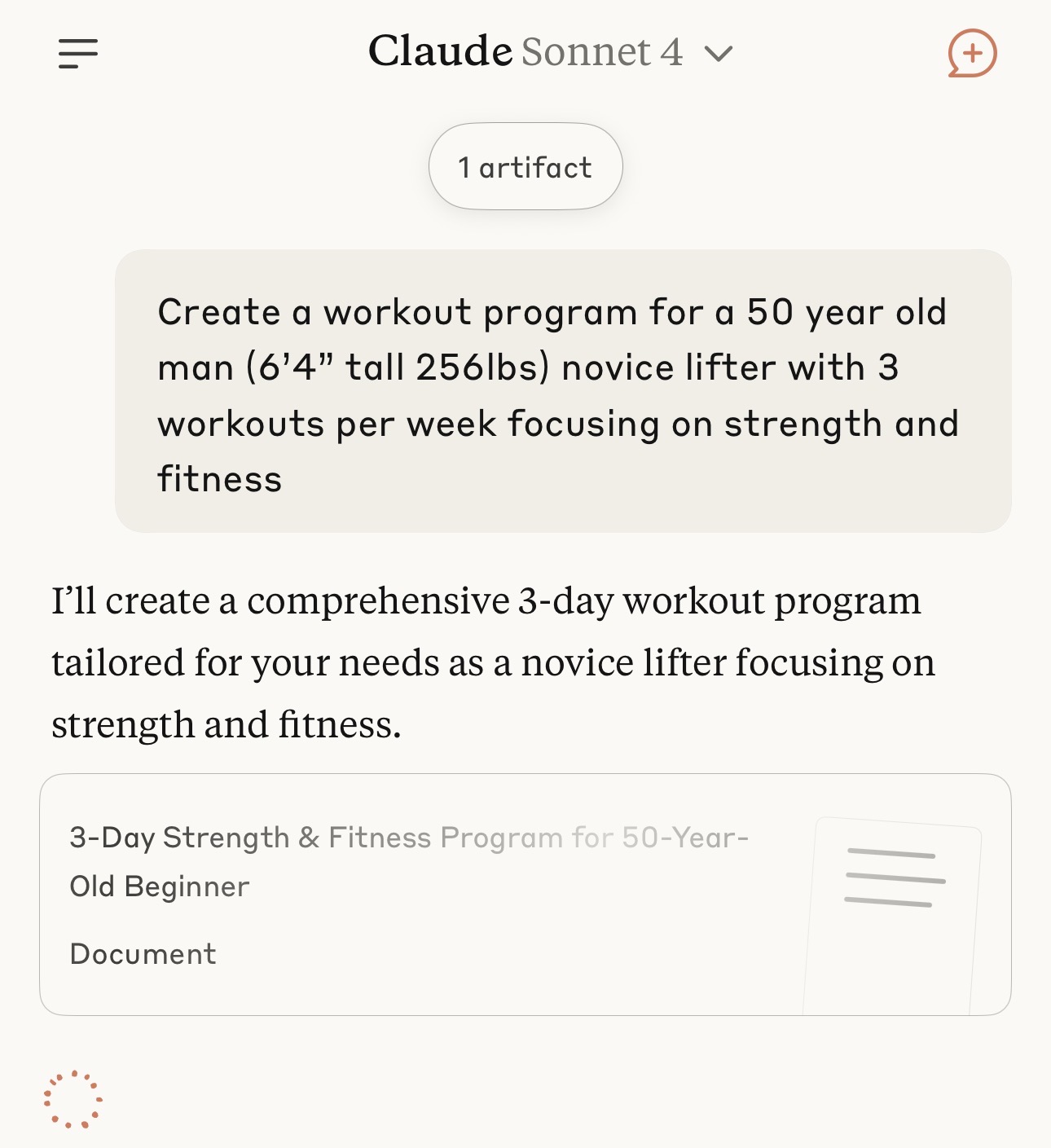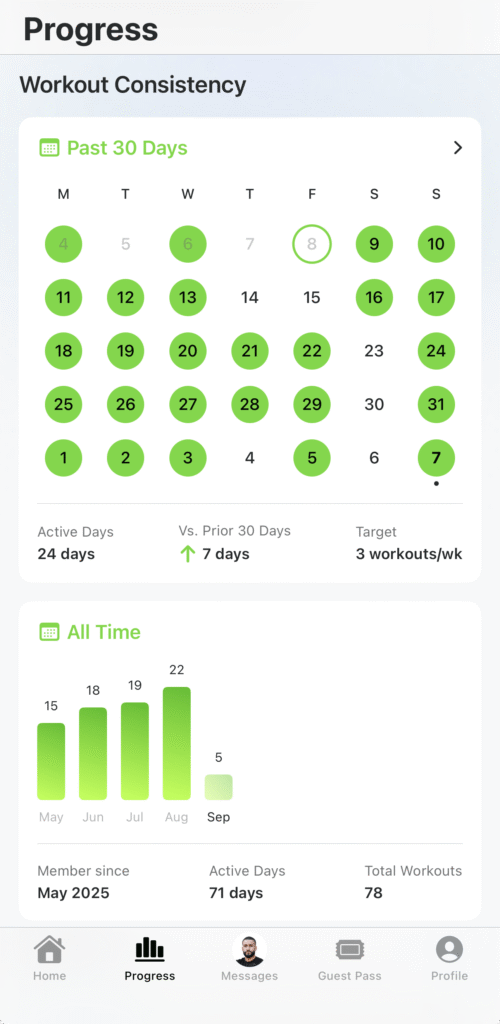There has been a flood of workout apps many of which provide some level of AI support. They tend to have a slick user interface, fancy graphs and sometimes even let you chat with you personal AI.
Using AI is shockingly easy to use and can be surprisingly effective at creating plausible workout programs. I tried this in my favorite AI bot Claude:

However, I think the main reason people, especially older unfit gym novices, look for a coach is not have a written program but for the motivation and feedback. When I decided to get healthy I made a couple of tries to get a fitness program started. I bought the indoor bike, the dumbbells, dusted of the old Concept2 rower that I bought out of college nostalgia, but I just couldn’t get into it. I tried various apps like Calibre and Hevy and that gave some structure and tracking, but training never became a habit.
After this frustrating experience I decided I needed a human coach to help me teach exercises and “proper form” (i.e. not injure myself) and most importantly enforce accountability. Ultimately I found a great trainer on the Future app and things immediately changed. I started working out consistently 4 times a week at home. In the following months we have bumped that up to 5 times a week (one of them in the gym in my office building).
It’s not even that my trainer gives me a hard time – the pressure to disappoint him is just so much higher than disappointing some AI algorithm..

If you want to make training a habit I strongly recommend enlisting a human to help. Whether you have a friend/relative who is a gym rat or a professional trainer. If you are intimidated by the idea of a public gym (as I was), use one of the online programs. It will make a huge difference.


